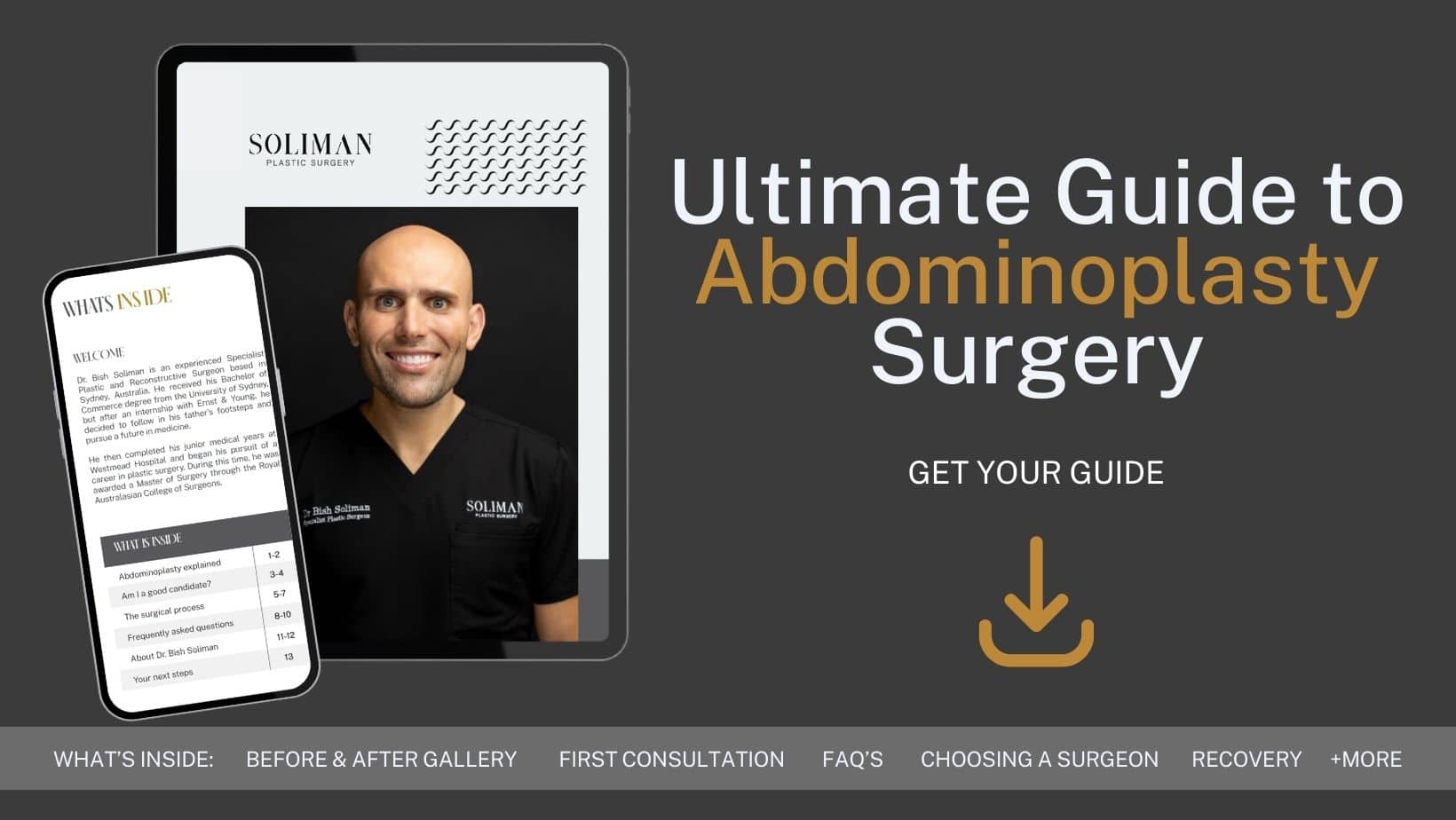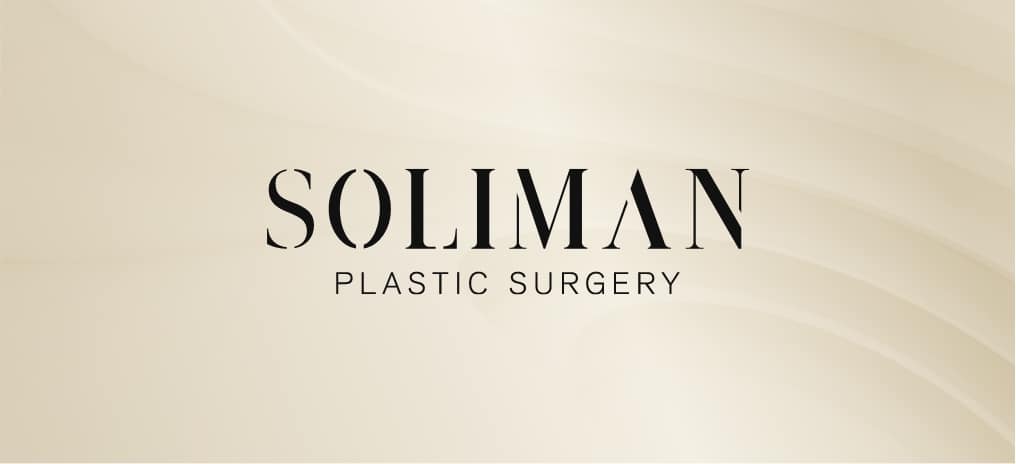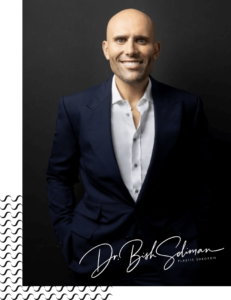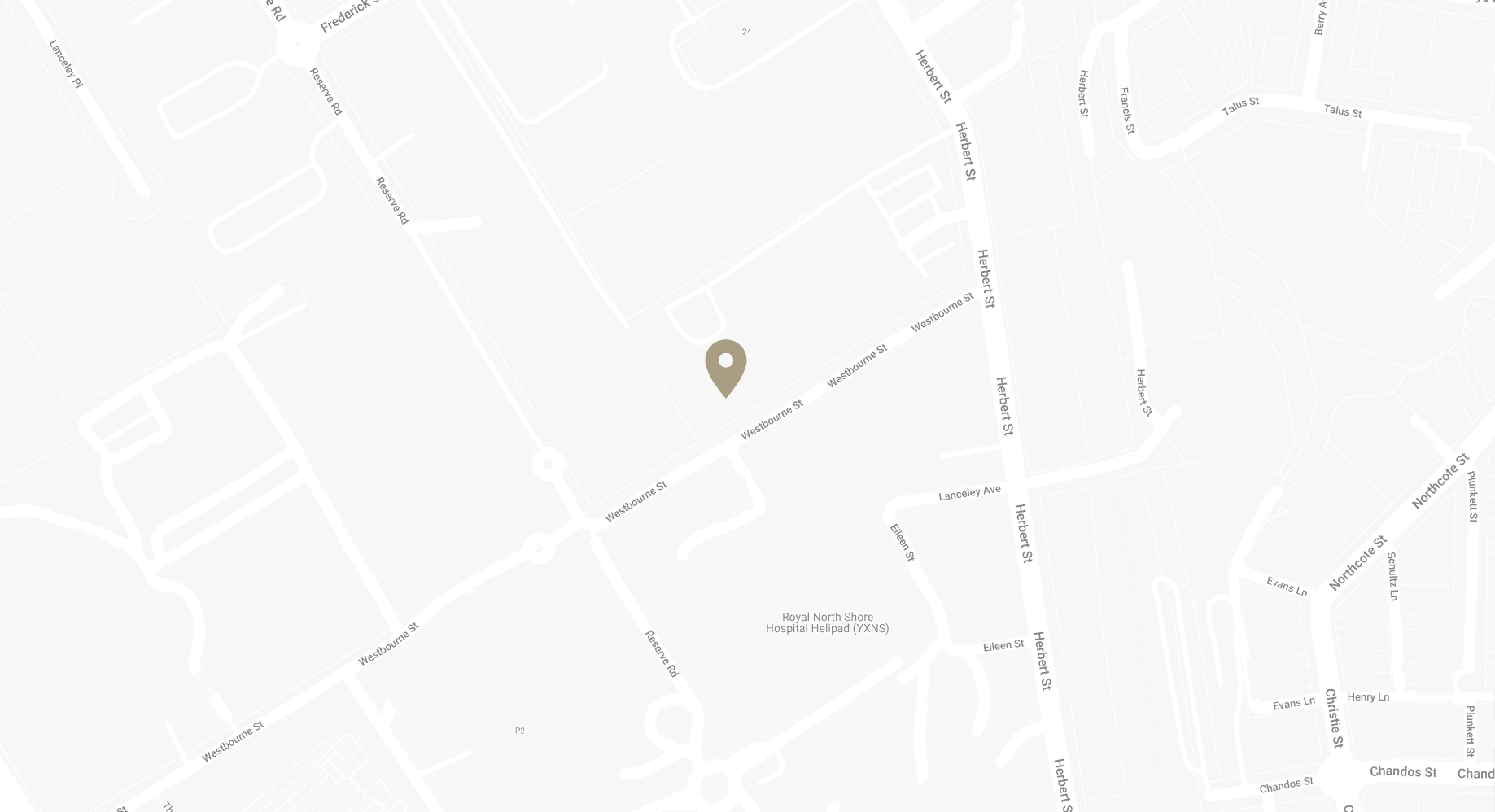Important Steps when Preparing for Tummy Tuck Surgery
The tummy tuck – abdominoplasty procedure can help reshape and tighten your abdominal area, but like any major surgery, it requires thoughtful preparation to ensure optimal outcomes. In this blog, Sydney Specialist Plastic Surgeon Dr Bish Soliman will walk you through a detailed timeline, starting from six months before your surgery to the day before, highlighting the important steps and considerations at each stage.
Download Dr Bish Soliman Abdominoplasty Guide

What to Do 6 Months in Advance to Prepare for Abdominoplasty
Understanding the Procedure and Setting Realistic Expectations
Six months before your abdominoplasty is an ideal time to deepen your understanding of the procedure. Research thoroughly about what the surgery entails, potential risks, and the recovery process. This is also the time to set realistic expectations. Abdominoplasty is not a weight-loss surgery; it’s designed to contour and remove excess skin. Understanding this distinction is crucial for your satisfaction with the results.
Choosing the Right Surgeon
Selecting a qualified and experienced plastic surgeon is pivotal. Look for certified surgeons (FRACS) specialising in abdominoplasty. Schedule consultations with potential surgeons to discuss their approach, view before-and-after photos of their previous patients, and understand their complication rates. This period is also about building a rapport with your surgeon and feeling comfortable with your choice.
Starting a Healthy Lifestyle
A healthy body ensures better recovery and results. If you smoke, now is the time to quit, as smoking can significantly impair healing and increase the risk of complications. Incorporate a balanced diet rich in proteins, vitamins, and minerals to boost your body’s ability to heal. Hydration is also key; ensure you drink plenty of water daily.
Beginning a Fitness Regimen
A moderate, consistent exercise routine is beneficial. Focus on cardiovascular activities like walking or swimming and strength training to improve your overall fitness. This doesn’t mean intense workouts but rather a consistent routine that enhances muscle tone and improves circulation.
Financial Planning
Abdominoplasty can be a significant financial commitment. Start planning for the costs, including the surgery, anaesthesia, facility fees, and aftercare. If your insurance doesn’t cover cosmetic procedures, look into financing options or set aside savings specifically for this purpose.
What to Do 3 Months before My Tummy Tuck Surgery (Abdominoplasty)
Medical Evaluation and Clearances
At this stage, undergo a complete medical evaluation. Dr Soliman might request blood tests and a physical examination to ensure you’re fit for surgery. If you have medical conditions like diabetes or high blood pressure, ensure they are well-managed. Obtain medical clearance from your primary care physician or any specialists you see.
Finalising Surgery Details
Confirm the date of your surgery and understand the specifics, including the type of abdominoplasty you’ll be undergoing (full, mini, or extended). Discuss with Dr Soliman any concerns or questions you might have as the surgery date approaches.
Adjusting Medications
Some medications and supplements can increase bleeding risk or interfere with anaesthesia. Discuss with your surgeon and primary care physician about any adjustments needed to your current medications. This might include temporarily stopping certain supplements or blood thinners.
Planning for Recovery
Start planning for your recovery phase. This includes arranging for time off work, help around the house, and childcare if necessary. Consider the logistics of your recovery area at home, ensuring it’s a comfortable space with essentials within reach.
Nutrition and Exercise
Continue with your healthy diet and exercise regimen. Focus on maintaining your weight, as significant fluctuations can affect the surgery results. Nutritional supplements may be recommended by Dr Soliman to optimise healing.
Mental Preparation
Undergoing surgery can be stressful. Engage in activities that promote mental well-being, such as meditation, yoga, or talking to a therapist. Being mentally prepared is just as important as being physically ready for surgery.
What to Do 1 Week before to Prepare for Tummy Tuck Surgery (Abdominoplasty)
Final Preparations
As your abdominoplasty approaches, it’s time for final preparations. Confirm your surgery time and any last-minute instructions with Dr Soliman’s office. Ensure you have a clear understanding of when to arrive and where to go on the day of your surgery.
Dietary Adjustments
In the week leading up to your surgery, pay close attention to your diet. Avoid foods that can cause bloating or discomfort, such as high-sodium foods, carbonated beverages, and certain vegetables. Eating light, easily digestible foods can help minimise any digestive issues post-surgery. Stay hydrated, but remember to follow your surgeon’s guidelines regarding fluid intake, especially the day before surgery.
Home Preparation
Prepare your home for your return from the hospital. Set up a recovery area in a comfortable space, ideally with access to a bathroom. Stock this area with necessities like water, snacks, medications, and entertainment options like books or a tablet. Ensure that everything you might need is within easy reach, as your mobility will be limited initially.
Packing Your Bag
Pack a bag for your hospital stay. Include loose, comfortable clothing that doesn’t need to be pulled over your head, a robe, slippers, and personal hygiene items. Remember to pack any documents your surgeon has requested, as well as a list of medications you’re taking.
Medication and Supplements
Follow Dr Soliman’s instructions regarding medications. This may include starting or stopping certain medications. If you’ve been advised to take any pre-operative medications, such as those to prevent blood clots, ensure you understand how and when to take them.
Transportation and Care Arrangements
Confirm your transportation arrangements for getting to and from the hospital. It’s crucial to have someone available to drive you home, as you won’t be able to drive yourself. Also, arrange for someone to stay with you for at least the first 24-48 hours after surgery, as you’ll need assistance with basic tasks.
Mental Preparation
Spend this time relaxing and mentally preparing for your surgery. Stress can impact your body’s ability to heal, so engaging in calming activities like reading, meditation, or gentle walks can be beneficial. Avoid stressful situations and focus on positive outcomes.
Last-Minute Questions
If you have any last-minute questions or concerns, don’t hesitate to contact Dr Bish Soliman’s office. It’s important that you feel fully informed and at ease as your surgery date approaches.
Preparing for Tummy Tuck (Abdominoplasty) – The Day before the Surgery
Fasting and Hydration
Dr Soliman will provide specific instructions regarding fasting before surgery. This typically includes not eating or drinking anything, including water, after midnight. Fasting helps prevent complications during anaesthesia.
Skin Preparation
You may be advised to shower using an antibacterial soap to reduce the risk of infection. Avoid applying lotions, perfumes, or deodorants after your shower, as these can interfere with the surgical process.
Comfort and Relaxation
The day before your surgery should be focused on relaxation. Engage in quiet, calming activities. Avoid strenuous activities or anything that might elevate your blood pressure or heart rate. Ensure you get a good night’s sleep, as rest is crucial for your body’s preparation for surgery.
Reviewing Post-Operative Instructions
Review the post-operative instructions provided by Dr Soliman. Understanding these instructions before your surgery can help reduce anxiety and ensure you’re prepared for the recovery process. This includes instructions on wound care, medications, activity levels, and signs of complications.
Preparing for Fasting
Since you’ll be fasting, plan a light, nutritious meal for your last meal before the cutoff time. Avoid heavy, greasy, or spicy foods that might upset your stomach.
Emotional Support
It’s normal to feel a mix of emotions before surgery. Spend time with loved ones who provide support and encouragement. Discussing your feelings can help alleviate any anxiety or fears you may have.
Final Checklist
Go through a final checklist to ensure everything is in place for your surgery. This includes your hospital bag, transportation, care arrangements, and any last-minute house preparations.
Should I Lose Weight Before My Abdominoplasty?
When considering abdominoplasty, one common question is whether to lose weight before the procedure. It’s important to understand the role that body weight plays in the context of a tummy tuck. Abdominoplasty is designed to remove excess skin and tighten the abdominal muscles, rather than serve as a primary method for weight loss. The procedure works best for individuals who are close to their ideal body weight but struggle with skin laxity or muscle separation that diet and exercise cannot address.
A good candidate for a tummy tuck -abdominoplasty is someone who is at or near their ideal body weight. Significant weight fluctuations after the procedure can affect the surgery’s results. If you gain weight post-surgery, the skin and abdominal area can stretch out again, potentially undoing the benefits of the abdominoplasty. Conversely, losing a lot of weight after the procedure can lead to additional loose skin, which might necessitate further surgical intervention.
Weight Stability is Key
Stability in your weight is crucial before undergoing abdominoplasty. Dr Soliman often recommends that patients maintain a stable weight for at least six months to a year before the surgery. This stability indicates that you are capable of maintaining a healthy lifestyle and that your body has adapted to this weight, ensuring the results of the surgery are long-lasting.
Losing Weight Healthily
If you are overweight and considering abdominoplasty, Dr Soliman may advise you to lose weight before the procedure. However, this weight loss should be achieved through healthy means, such as a balanced diet and regular exercise. Crash dieting or extreme weight loss methods are discouraged, as they can lead to nutritional deficiencies and do not promote sustainable weight management. A gradual and steady weight loss ensures that your body adjusts properly, and it also gives you time to adopt a lifestyle that you can maintain post-surgery.
FAQs about How to Prepare for Tummy Tuck Surgery (Abdominoplasty)
How can I prepare my body for tummy tuck – abdominoplasty?
- To prepare your body for a tummy tuck – abdominoplasty, it’s crucial to maintain a stable weight and a healthy diet. Focus on eating balanced meals rich in vitamins and proteins to support healing. Avoid drastic weight loss or gain, as this can affect the surgery’s outcome. It’s also important to stay hydrated and avoid substances that can hinder recovery, such as nicotine and excessive alcohol. Consult with Dr Soliman about any medications or supplements you’re taking, as some may need to be adjusted or stopped before the procedure.
What should I avoid before my abdominoplasty surgery?
- Before undergoing abdominoplasty, you should avoid smoking and using nicotine products, as they can impair healing and increase the risk of complications. It’s also advisable to stop taking certain medications, like aspirin, anti-inflammatory drugs, and herbal supplements, which can increase bleeding. Avoid crash diets; instead, maintain a balanced diet.
What exercises should I do to prepare for tummy tuck – abdominoplasty?
- To prepare for a tummy tuck – abdominoplasty, focus on exercises that strengthen your core, such as planks, pelvic tilts, and gentle abdominal crunches. Cardiovascular exercises like walking, swimming, or cycling can help improve blood circulation, which is beneficial for recovery. However, it’s important to avoid overexertion.
What should I do a week before my abdominoplasty?
- A week before your abdominoplasty, start preparing your body and environment for recovery. Finalise any work or personal responsibilities to ensure a stress-free recovery period. Prepare a recovery area in your home with essentials within easy reach, including pillows, blankets, and entertainment. Begin adjusting your diet to include easily digestible foods and avoid alcohol. Confirm transportation arrangements for the day of surgery and the first follow-up appointment. Lastly, follow any specific pre-operative instructions given by Dr Soliman, such as showering with antibacterial soap.
What to pack in my hospital bag for a tummy tuck – abdominoplasty?
- For your hospital stay during a tummy tuck – abdominoplasty, pack loose, comfortable clothing that is easy to put on and take off, such as button-up shirts or zippered outfits. Include personal hygiene items, like a toothbrush, toothpaste, and unscented lotion. Bring essential medications and a list of them for the medical team. Pack items for entertainment, such as books, magazines, or a tablet. Don’t forget to include important documents like your ID, insurance information, and any medical paperwork. Comfort items like a soft pillow or blanket can also be helpful.
Further Reading about Abdominoplasty Surgery with Sydney Plastic Surgeon Dr Bish Soliman
- Read Dr Bish Soliman’s Blog about Lipoabdominoplasty for a Contoured Stomach
- Read Dr Bish Soliman’s Blog about Getting Back to Exercise After Tummy Tuck (Abdominoplasty)
- Read Dr Bish Soliman’s Blog about FAQs about Tummy Tuck Surgery (Abdominoplasty)
- Read Dr Bish Soliman’s Blog about Medicare for Abdominoplasty
- Read Dr Bish Soliman’s Blog about Do You Have Split Tummy Muscles?
- Read Dr Bish Soliman’s Blog about How to Sleep Better After Tummy Tuck – Abdominoplasty
- Read Dr Bish Soliman’s Blog about Tummy Tuck – Abdominoplasty Complications
Medical References about Preparing for Tummy Tuck Surgery (Abdominoplasty)
- Tummy tuck – Mayo Clinic
- Five things to consider before getting a tummy tuck – American Society of Plastic Surgeons
- Tummy Tuck Preparation – American Society of Plastic Surgeons
- Tummy Tuck: Before Your Surgery – My Health Alberta
- Tummy Tuck Surgery (Abdominoplasty) – WebMD



